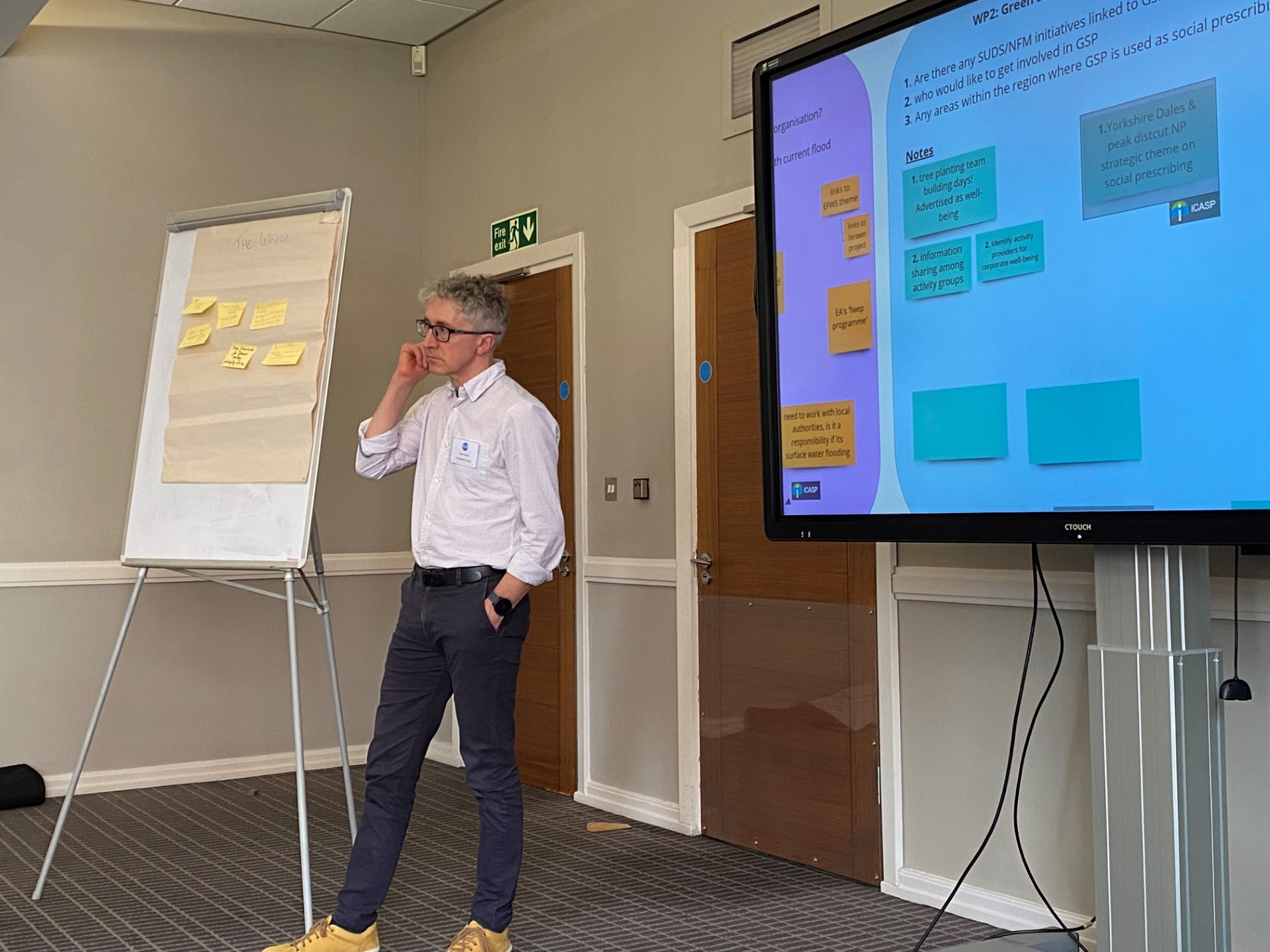Relevance
There is increasing awareness of the potential benefits to health and wellbeing of being outdoors in nature. In 2020, the UK Government launched a £4m investment into green social prescribing (GSP) activities, which can be defined broadly as health professionals connecting people to community-level, nature-based activities for practical, social and emotional support to benefit their health and wellbeing. This initial Government investment supported seven new GSP initiatives, including two in Yorkshire – one run by Humber Coast and Vale Health and Care Partnership (now Humber and North Yorkshire) and South Yorkshire and Bassetlaw Integrated Care System. University of York are the evaluation partners for the Humber and North Yorkshire GSP initiative.
Our previous work in the Humber and North Yorkshire area has highlighted the wide range of referral pathways into GSP schemes, and the various barriers that can exist between health professionals, service users and providers of nature-based activities. These barriers include issues of capacity, affordability, transport, communication and understanding. This can result in fewer people being able to access high quality nature based activities through green social prescribing, especially among people from lower-income groups and those living with mental health conditions.

There are a wide range of potential providers of nature- based activities which could be linked to Green Social Prescribing pathways, especially amongst nature orientated organisations such as the Wildlife Trusts and other environmental non-government organisations. Natural Flood Management (NFM) initiatives potentially provide opportunities for people to become involved in conservation activities to reduce the risk and impact of flooding. However, our previous that there needs to be a clear referral pathway to achieve desired health outcomes from GSP initiatives. If there is no effective referral pathway in place, there will be reduced take-up and reach, with little or no impact on reducing health inequalities.
Aim
The aim of this work package is to build on iCASP and other existing research on the benefits and implementation of Green Social Prescribing schemes. We will explore opportunities for Natural Flood Management and Sustainable Urban Drainage Systems (SuDS) activities in West Yorkshire to be integrated with Green Social Prescribing.
Activities
We will:
- Review existing GSP initiatives and NFM activities across the region and carry out an analysis, including location and accessibility, to identify where there is potential provision that could link to existing referral pathways
- Carry out interviews and/or focus groups to identify needs and connect health professionals with NFM practitioners to explore barriers, communication deficits and opportunities across green social prescribing and SuDS/NFM activities in areas we have identified as having the necessary elements of an effective pathway in place
- Identify specific SuDS/NFM-based GSP opportunities and potentially work closely with one or two NFM schemes, providing support to them in terms of what they would need to have in place to become part of a social prescribing initiative, including linking them up with other parts of the prescribing pathway
- Potentially undertake some evaluation of pilot schemes using a similar protocol we have developed and implemented in our evaluation of the Humber and North Yorkshire GSP initiative.
Team
Project leads
Professor Piran White – University of York
Professor Peter Coventry – University of York
Professor Neil Lunt – University of York
Dr Laura Harrison – University of York
